Greek Orthodox Calendar: January 2025
Greek Orthodox Calendar: January 2025
Related Articles: Greek Orthodox Calendar: January 2025
- Buy Calendar 2025 Online: A Comprehensive Guide
- HR Calendar Of Activities 2025: A Comprehensive Guide For HR Professionals
- Calendario ITESO 2025: A Roadmap For Educational Excellence And Innovation
- Railway Poster Art Calendar 2025: A Journey Through Time And Travel
- 2025 Fillable Printable Calendar: Plan And Organize Your Year With Ease
Introduction
With great pleasure, we will explore the intriguing topic related to Greek Orthodox Calendar: January 2025. Let’s weave interesting information and offer fresh perspectives to the readers.
Table of Content
Video about Greek Orthodox Calendar: January 2025
Greek Orthodox Calendar: January 2025

The Greek Orthodox Church follows the Julian calendar, which is 13 days behind the Gregorian calendar used by most of the world. As a result, the dates of Orthodox holidays and feasts differ from those of other Christian denominations.
January is a significant month in the Orthodox calendar, marking the beginning of the new liturgical year. It is a time for reflection and renewal, as well as the celebration of several important feasts.
January 1: New Year’s Day
The Orthodox Church celebrates New Year’s Day on January 1 according to the Julian calendar. This corresponds to January 14 on the Gregorian calendar. The day is marked by special services and prayers for the coming year.
January 5: Feast of the Synaxis of the Theotokos
This feast commemorates the gathering of the faithful in Constantinople to honor the Virgin Mary. It is a day of joy and thanksgiving, and is celebrated with special hymns and prayers.
January 6: Theophany
Theophany, also known as Epiphany, is one of the most important feasts in the Orthodox calendar. It commemorates the baptism of Jesus Christ in the Jordan River. The day is marked by special services and the blessing of water.
January 7: Feast of Saint John the Baptist
This feast celebrates the birth of Saint John the Baptist, the forerunner of Jesus Christ. It is a day of joy and celebration, and is marked by special hymns and prayers.
January 9: Feast of Saint Stephen the Protomartyr
Saint Stephen was the first Christian martyr, and his feast day is celebrated on January 9. It is a day of remembrance and reflection on the importance of Christian witness.
January 14: Feast of Saint Basil the Great
Saint Basil the Great was one of the most influential theologians and bishops in the history of the Orthodox Church. His feast day is celebrated on January 14, and is marked by special hymns and prayers.
January 17: Feast of Saint Anthony the Great
Saint Anthony the Great is considered the father of Christian monasticism. His feast day is celebrated on January 17, and is marked by special hymns and prayers.
January 19: Feast of the Holy Theophany
This feast commemorates the baptism of Jesus Christ in the Jordan River. It is a day of joy and celebration, and is marked by special hymns and prayers.
January 20: Feast of Saint Euthymius the Great
Saint Euthymius the Great was a renowned ascetic and abbot. His feast day is celebrated on January 20, and is marked by special hymns and prayers.
January 21: Feast of Saint Maximus the Confessor
Saint Maximus the Confessor was a theologian and philosopher who defended the Orthodox faith against heresy. His feast day is celebrated on January 21, and is marked by special hymns and prayers.
January 22: Feast of Saint Anastasius the Persian
Saint Anastasius the Persian was a martyr who was killed for his Christian faith. His feast day is celebrated on January 22, and is marked by special hymns and prayers.
January 23: Feast of Saint Gregory the Theologian
Saint Gregory the Theologian was one of the Cappadocian Fathers, and is considered one of the greatest theologians of the Orthodox Church. His feast day is celebrated on January 23, and is marked by special hymns and prayers.
January 25: Feast of the Conversion of Saint Paul
This feast commemorates the conversion of Saint Paul from a persecutor of Christians to a follower of Jesus Christ. It is a day of joy and celebration, and is marked by special hymns and prayers.
January 27: Feast of Saint John Chrysostom
Saint John Chrysostom was one of the most influential preachers and theologians in the history of the Orthodox Church. His feast day is celebrated on January 27, and is marked by special hymns and prayers.
January 29: Feast of Saint Peter the Aleut
Saint Peter the Aleut was the first Orthodox missionary to Alaska. His feast day is celebrated on January 29, and is marked by special hymns and prayers.
January 30: Feast of the Three Hierarchs
This feast commemorates the three great theologians of the Cappadocian Fathers: Saint Basil the Great, Saint Gregory the Theologian, and Saint John Chrysostom. It is a day of joy and celebration, and is marked by special hymns and prayers.
January 31: Feast of Saint Athanasius the Great
Saint Athanasius the Great was a theologian and bishop who defended the Orthodox faith against the Arian heresy. His feast day is celebrated on January 31, and is marked by special hymns and prayers.
In addition to these major feasts, January also includes several other important commemorations and fasts. These include:
- January 2: Fast of the Nativity
- January 3: Feast of Saint Melania the Younger
- January 4: Feast of Saint Theodore the Tyro
- January 8: Fast of the Holy Apostles
- January 10: Feast of Saint Gregory of Nyssa
- January 11: Feast of Saint Theodosius the Cenobiarch
- January 12: Feast of Saint Macrina the Younger
- January 13: Feast of Saint Hilary of Poitiers
- January 15: Feast of Saint Paul of Thebes
- January 16: Feast of Saint Marcella
- January 18: Feast of Saint Athanasius the Athonite
- January 24: Feast of Saint Xenia of Petersburg
- January 26: Feast of Saint Polycarp
- January 28: Feast of Saint Ephrem the Syrian
The Greek Orthodox calendar is a rich and diverse liturgical resource that provides a framework for Christian worship and spiritual growth throughout the year. By observing the feasts and fasts of the calendar, Orthodox Christians can deepen their relationship with God and grow in their faith.

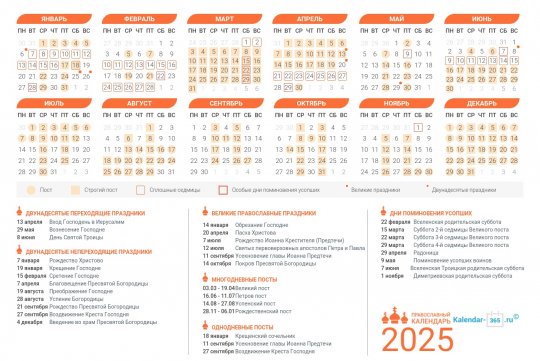
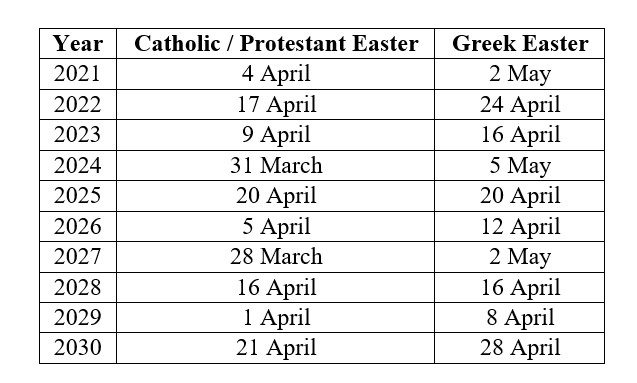

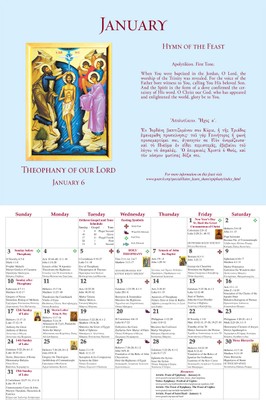
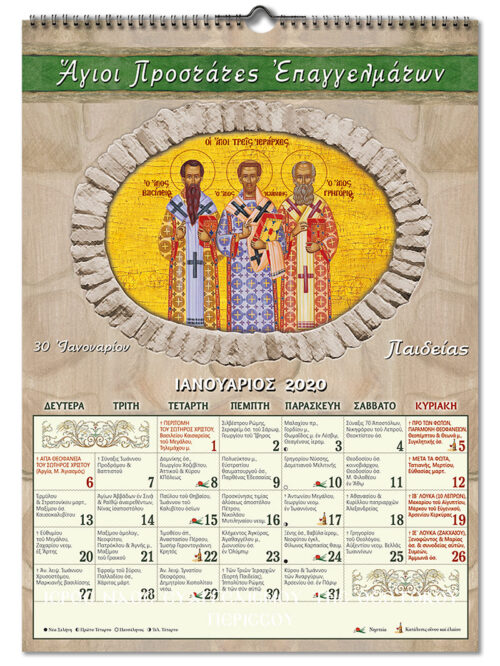
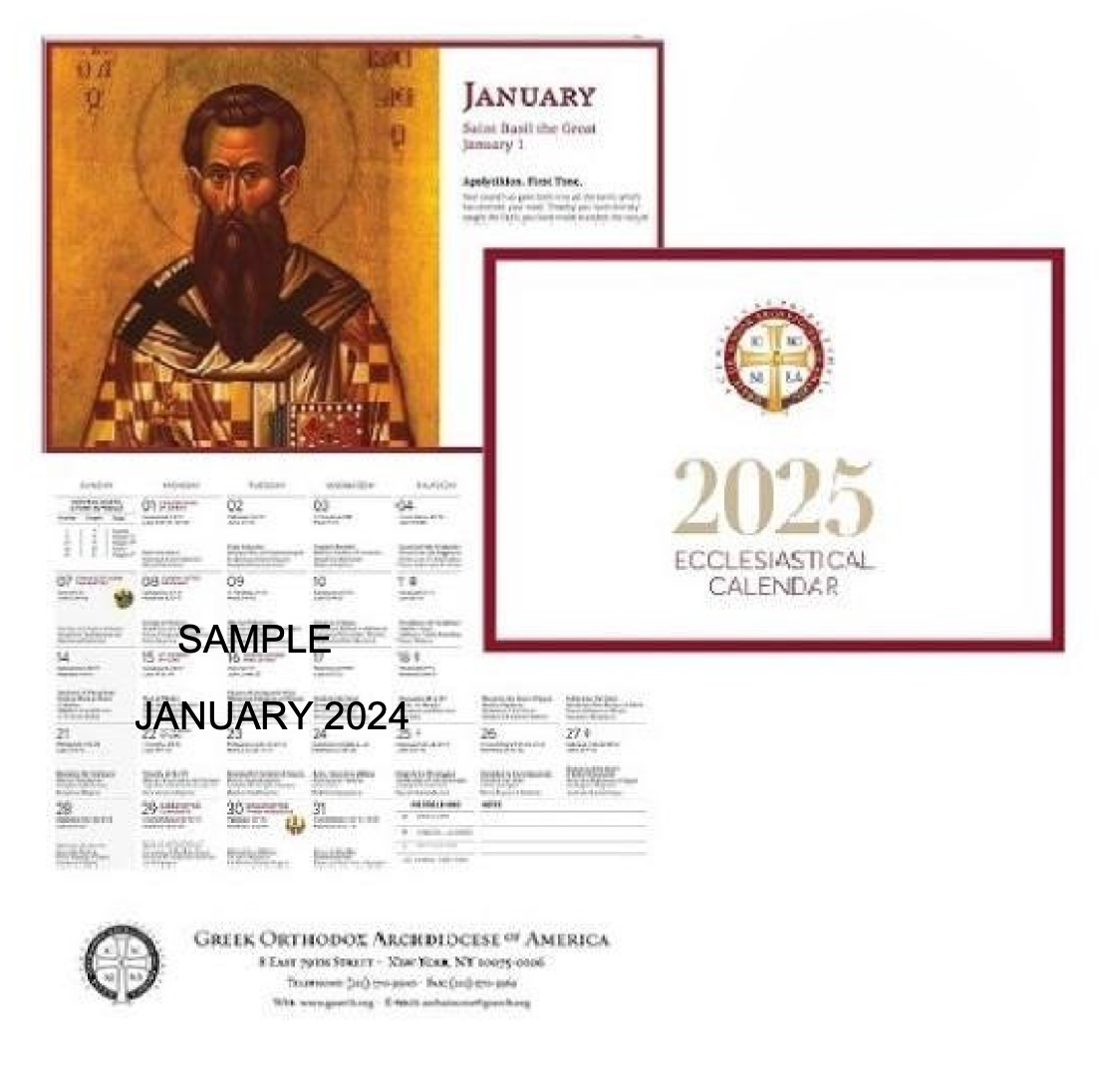
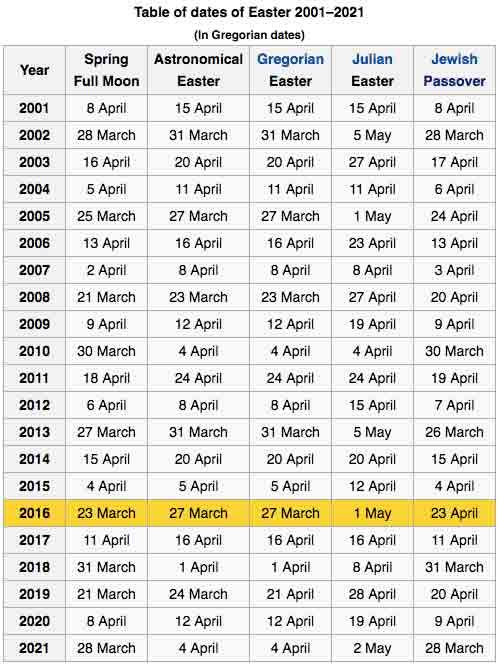
Closure
Thus, we hope this article has provided valuable insights into Greek Orthodox Calendar: January 2025. We hope you find this article informative and beneficial. See you in our next article!